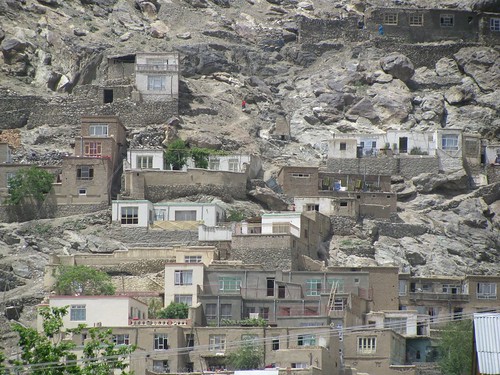Monday
May182009
Admiral Mullen: Our Future Is Guaranteed If We Take Care Of Our People
By Celia Canon- Talk Radio News Service
“Our future is guaranteed from a national standpoint If we take care of our people,” according to Admiral Michael Mullen, the Chairman of the Joint Chiefs of Staff.
This was one of the central points of Admiral Mullen’s talk on the “Future of Global Engagement” at the Brookings Institution today.
Afghani presidential elections coming up in August are forcing the U.S. military to draft a report on the effectiveness of the U.S.-led coalition in Afghanistan.
In addition, the law passed by Afghani President Hamid Karzai which prohibits a woman from refusing sexual intercourse with her husband may have signaled the need for yet more work and presence from the troops, implying the road is still long for the soldiers who are stationed there.
On his priorities, Mullen said, “The main effort right now is in Afghanistan. Increase the growth of the Army and the Marine Corps. But now those forces must be put together to rotate in the theater.”
Mullen added that because of the need for troops in different missions, “The numbers (of repeated deployments per soldier) we are getting right now are 3 and 4 but we’ve talked to families that are on their fifth and sixth deployment.”
“Even in our eighth year of war we’re in the beginning of getting at what I consider to be a debt that needs to be repaid for those sacrifices (by the troops), it’s for injuries seen but it’s also for injuries unseen,” said Mullen.
Mullen said that “what we should buy for their future is to make sure we get it right for our people, that’s health care, that’s housing, that's benefits, that's the compensation packages, that's the bonuses... that's where I spend an awful lot of my time with the services chief."
“Our future is guaranteed from a national standpoint If we take care of our people,” according to Admiral Michael Mullen, the Chairman of the Joint Chiefs of Staff.
This was one of the central points of Admiral Mullen’s talk on the “Future of Global Engagement” at the Brookings Institution today.
Afghani presidential elections coming up in August are forcing the U.S. military to draft a report on the effectiveness of the U.S.-led coalition in Afghanistan.
In addition, the law passed by Afghani President Hamid Karzai which prohibits a woman from refusing sexual intercourse with her husband may have signaled the need for yet more work and presence from the troops, implying the road is still long for the soldiers who are stationed there.
On his priorities, Mullen said, “The main effort right now is in Afghanistan. Increase the growth of the Army and the Marine Corps. But now those forces must be put together to rotate in the theater.”
Mullen added that because of the need for troops in different missions, “The numbers (of repeated deployments per soldier) we are getting right now are 3 and 4 but we’ve talked to families that are on their fifth and sixth deployment.”
“Even in our eighth year of war we’re in the beginning of getting at what I consider to be a debt that needs to be repaid for those sacrifices (by the troops), it’s for injuries seen but it’s also for injuries unseen,” said Mullen.
Mullen said that “what we should buy for their future is to make sure we get it right for our people, that’s health care, that’s housing, that's benefits, that's the compensation packages, that's the bonuses... that's where I spend an awful lot of my time with the services chief."




 Monday, May 18, 2009 at 5:24PM
Monday, May 18, 2009 at 5:24PM



Both U.S. And Afghanistan Must Take Ownership Of Missteps, Says Liberal Analyst
Talk Radio News Service
There have been recent reports regarding U.S military involvement in the deaths of three Afghan women in February following an American Special Operations attack. The nighttime raid is now being called a cover-up with signs of evidence tampering at the scene by Special Operation Forces, who dug out bullets from the bodies of the women in order to hide the true nature of their deaths.
Matthew Duss, National Security Editor at the Center for American Progress, said the U.S. had dealt with the situation in an incorrect manner by choosing to cover-up the true outcome of the assault.
“When there are civilian casualties and other collateral damage to operations like this, I would think that the best thing to do is to own up to it, and recognize it, and deal with the problem. In general, it seems to me that the U.S. has been better at doing that.” said Duss. “General McChrystal himself has been personally involved in dealing with the families of certain civilians in the past who have been killed by air raids or other raids carried out by special forces. It seems it was just not done this time.”
Despite Afghan President Hamid Karzai accusing Western troops of weakening his government, said Duss, Karzai himself is truly to blame for the fact that his government is still dysfunctional.
“What the U.S. and its partners are trying to do is to help stand up an effective and legitimate Afghan central government, and the ongoing corruption of that government really handicaps that effort. We had President Obama in Afghanistan just last weekend making a very public plea to Karzai to deal with the problem,” said Duss.
According to Duss, it is unclear what the United States can really do in Afghanistan if the culture of corruption is not effectively managed by Karzai and his government.